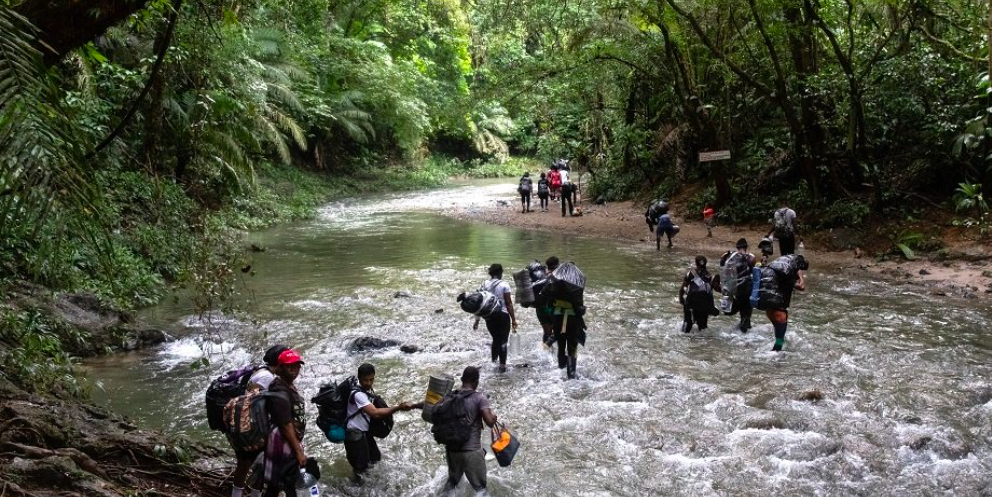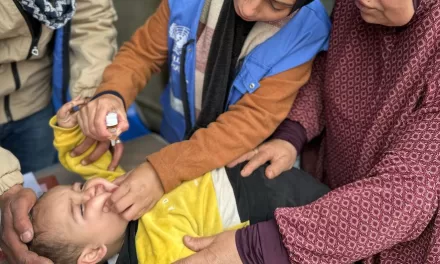
Time to act on health systems that include migrants
This year International Migrants Day falls shortly after the first ever World report on the health of refugees and migrants launched, shedding light and key evidence on the multitude of health challenges faced by migrants and refugees along their journeys.
We are an increasingly mobile planet. Around 1 in every 8th person on the globe is a migrant or is moving, and this is likely to grow due to conflicts, persecutions, environmental degradation and climate change. People also move because of a lack of human security and opportunities. The experience of migration is a key determinant of health and well-being and certain groups of migrants, such as low-skilled migrant workers remain among some of the most vulnerable members of society, especially where living and working conditions are not conducive to good health.
Health for all, including migrants and refugees, is entirely possible if we work together to create truly inclusive health systems. WHO is playing a key role in bringing attention to the health issues of people on the move, building a critical body of evidence, guidance and tools, and advocating for universal health coverage, that truly leaves no one behind.
Public health and migration
Migrants come from every country and part of the globe, and there is much more to do to ensure they receive appropriate and accessible health care at every stage of their journey. Why is health such a critical issue for migrants?
- Millions of migrants in vulnerable situations, such as low-skilled migrant workers, have poorer health outcomes than host communities, especially where living and working conditions are sub-standard.
- A significant number of the 169 million migrant workers globally are engaged in dirty, dangerous, and demanding jobs, placing them at greater risk of occupational accidents, injuries, and work-related health problems.
- Addressing the needs of migrants responds to the human right to health, protects the health of both migrants and host communities, and contributes to integration and social and economic development. Furthermore, it ensures security for global public health.
Migrants contribute an immense amount in skills, energy, culture and networks, to their host societies. They are not inherently less healthy than host country populations, but their poorer health outcomes are in fact rooted in suboptimal education, income, housing, access to services, and compounded by linguistic, cultural, legal, and other barriers. WHO’s 2022 World report on the health of refugees and migrants summarizes the global evidence of these crucial determinants of health, and presents key information about trends, gaps, and good practices in protecting and promoting the health of migrants and refugees worldwide.
It is vital to act now to develop inclusive policy and responsive public health systems, enabling migrants to participate as integral parts of thriving societies.
How you can get involved
- Learn more, visit the WHO Health and Migration Programme page to find out more about how we work for the health of migrants and to discover useful resources to address migrants’ needs and rights. Visit this page to learn more about how health providers can adapt WHO global competency standards to their work with migrants.
- On social media, share WHO’s infographics and videos to encourage awareness, and to dispel myths about health of migrants.
Our work
Integrating migrants into primary health care
WHO is working to facilitate a radical reorientation of health systems towards a primary health care approach, as the foundation of universal health coverage, that includes migrants. This approach includes three essential components: integrated health services to meet people’s health needs throughout their lives; addressing the broader determinants of health through multisectoral policy and action; empowering individuals, families, and communities to take charge of their own health.
WHO’s Health and Migration Programme is rooted in these foundational elements.
Strengthening health system capacity
Based partly on experiences gained during the COVID-19 pandemic, WHO promotes three components necessary for implementing an integrated approach to policies addressing migration and public health:
- protection-sensitive access to territory – enabling access to territories and asylum procedures for people who need international protection;
- flexibility regarding migratory status to ensure that irregular (undocumented) migrants have safe and lawful access to health services;
- non-discriminatory access to health care that provides equal access to health care for all, regardless of migratory status, nationality, gender, gender identity, age or ethnicity.
Actions to promote the health of migrants
The goal of the WHO Global Action Plan “Promoting the health of refugees and migrants” (2019-2023) is to assert that health is an essential component of protection and assistance for refugees and migrants, and of good migration governance. It aims to improve global health by addressing the health and well-being of migrants and refugees inclusively and comprehensively as part of holistic efforts to respond to health needs in any setting. It recognizes that in order to prevent inequities, the public health opportunities and challenges offered by migrants and refugees cannot be separated from those of the host population. This approach is justified not only by humanitarian motivations but also because it reflects rational public health practice. It also reflects the urgent need for the health sector to deal more effectively with the impacts of migration and displacement on health.
Building global and local research capacity
The WHO’s Health and Migration Programme works globally to fill evidence gaps on health and migration. In 2023, the Programme is leading the first Global research agenda on health and migration, bringing together stakeholders from all regions to determine global research priorities under the themes of universal health coverage, healthier populations and health emergencies. The Health and Migration Programme will continue working closely with regions and countries to build capacity on health and migration, support operational research and develop regional and national research agendas on health and migration. Addressing knowledge gaps and translating evidence into policy and practice contributes to the longer term goal of moving towards health systems that are more responsive to current and future population movement dynamics, to improve the health of migrants, refugees and host populations globally.











